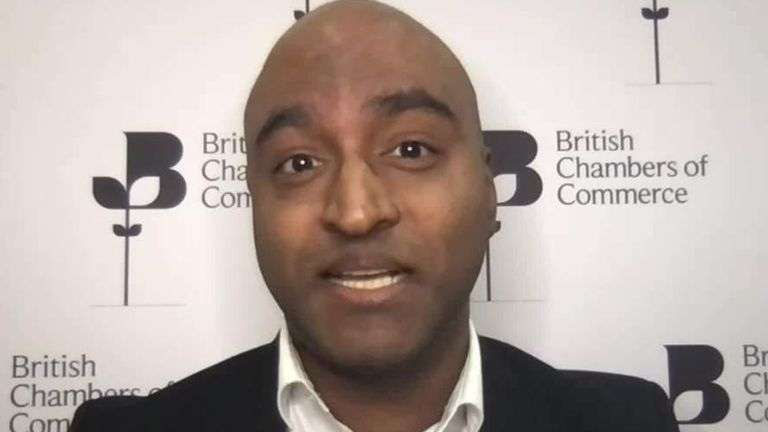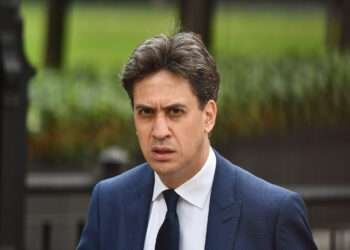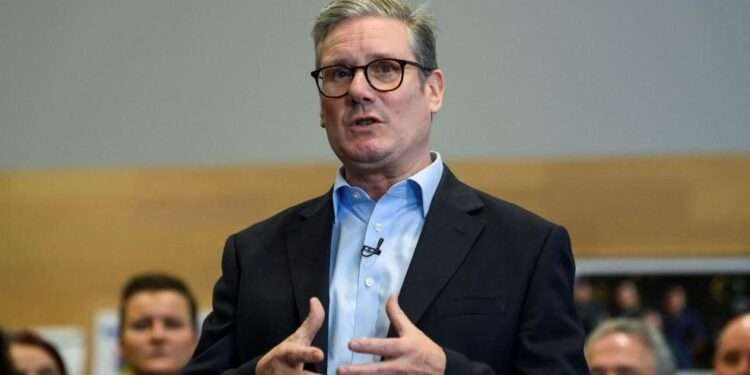According to official figures released on Wednesday, June 19, inflation in the UK has returned to the Bank of England’s target rate of 2% for the first time in nearly three years.
This significant development has been heralded by the governing Conservative Party as a sign that its economic strategy is “working” just ahead of the crucial July 4 election.
The Office for National Statistics reported that inflation, as measured by the consumer prices index, fell to 2% in the year to May from 2.3% the previous month.
The most substantial downward pressure came from food prices, which have been a significant factor in the cost-of-living crisis over the past few years.
While the decline signifies that prices are rising at a slower rate, it doesn’t imply they are falling. Nonetheless, Conservative Prime Minister Rishi Sunak quickly claimed credit for the reduction, asserting it as proof that the “economy has now turned a corner.”
Conversely, Rachel Reeves, the opposition Labour Party’s shadow chancellor who stands to become Treasury chief if her party wins, argued that ordinary people remain “worse off.”
She pointed out that mortgage rates are higher than they have been in years, and taxes are at a 70-year peak, making life tougher for many households.
This drop in inflation marks the first time since July 2021 that it has hit the target rate.
Inflation had been soaring due to a combination of supply chain disruptions during the coronavirus pandemic and the surge in energy costs following Russia’s invasion of Ukraine.
Despite the positive news, few economists expect the Bank of England to lower its main interest rate from the current 5.25% when it meets on Thursday.
Some policymakers remain worried about persistent price increases in the critical services sector and rapid wage growth, which could lead to an inflationary resurgence if rates are cut prematurely.
Financial markets broadly anticipate that any rate cuts will be delayed until August.
“Despite this landmark fall in inflation, concerns over both underlying price pressures and changing policy in the run-up to a general election mean a June interest rate cut is almost certainly off the table,” said Suren Thiru, economics director at The Institute of Chartered Accountants in England and Wales.

A Boon for Conservatives Ahead of Election
Although the Bank of England operates independently from the government, there is a widespread expectation that it will maintain its current stance during the election period to avoid any perception of political influence.
Like the US Federal Reserve and other central banks, the Bank of England initiated a series of aggressive interest rate hikes starting in late 2021 to combat the rapid inflation surge, which peaked above 11%.
These higher interest rates have been effective in cooling the economy by making borrowing more expensive.
However, this has also put additional strain on the British economy, which has experienced minimal growth since rebounding from the pandemic.
The return to the 2% inflation target is a notable achievement for the UK government, providing a potential boost for the Conservative Party as it campaigns for re-election.
However, with many households still feeling the squeeze from high living costs, the impact of this economic milestone on voters remains to be seen.
As the election draws near, economic policy and its effects on everyday life are sure to be pivotal issues for the electorate.
READ ALSO: Ghana’s Economy Shows Resilience with 4.7% Growth in Q1 2024





















